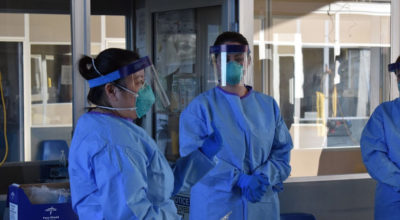
The state’s duty in prosecuting you for a “traffic offense” is no lighter than if it were prosecuting you for murder.
By David Tulis / NoogaRadio 92.7 FM
It must allege and prove all the essential elements of a crime. If the crime is “driving on revoked” or “driving on suspended” or “reckless driving,” it must allege and prove each of the elements.
Common among these three types of cases chased through criminal court is “driving.”
Trial courts routinely apply the Tennessee trucking, shipping, hauling and transportation law against people prosecuted by police, sheriff’s departments and district attorneys — people who are not involved in the shipping trades not exercising an occupational privilege by using the roads as their principal place of business in hauling goods or people in a way affecting interstate commerce.
Let’s make clear this is an abusive application, a misapplication of law, done intentionally and in bad faith, particularly in jurisdictions such as Hamilton County, where the principle parties are under Tennessee transportation administrative notice as of Feb. 20, 2018 (city of Chattanooga) and March 1, 2018 (Sheriff Jim Hammond).
It is a right of due process that the essential elements of a criminal charge be alleged and proven.
When a defendant challenges the sufficiency of the evidence, this court must determine whether the evidence is sufficient “to support the finding by the trier of fact of guilt beyond a reasonable doubt.” Tenn. R. App. P. 13(e). The appellate court examines the relevant statute to determine the essential elements for the offense and analyzes the evidence admitted at trial to determine whether each element is adequately supported. State v. Stephens, 521 S.W.3d 718, 723-24 (Tenn. 2017) *** . The court determines “ ‘whether, after viewing the evidence in the light most favorable to the prosecution, any rational trier of fact could have found the essential elements of the crime beyond a reasonable doubt.’ ” Id. at 724 (quoting Jackson v. Virginia, 443 U.S. 307, 319 (1979) ).
State v. Jarman, No. M201701313CCAR3CD, 2018 WL 5885903, at *7 (Tenn. Crim. App. Nov. 8, 2018), appeal granted (Mar. 27, 2019), rev’d, No. M201701313SCR11CD, 2020 WL 3638015 (Tenn. July 6, 2020)
The case of Commonwealth of Virginia v. A****** T**** illustrates the controlling rule on essential element. The trooper had duty to allege — and prove — the four essential elements of reckless driving. These are self-propulsion or locomotion in car, truck or motorbike or the driving or operating of a motor vehicle; intent or scienter — “recklessly”; proximity of others (“any person”); and acts (“at a speed or in a manner”) that endanger “the life, limb, or property” of people nearby.
In that case, none were alleged on the complaint, and only one was argued at trial.
The accused — an artist who returned from the Netherlands to face trial in Smyth County, Va. — filed an appeal as a matter of law with a new trial set in Marion on Sept. 28.
If you are facing a charge under the trucking law in Tennessee, or another jurisdiction, you will determine if the charging instrument is sufficient on the element of “driving” or commercial use. Usually it is not.
Evidence for essential element of ‘commerce’
Here are questions I propose you ask the officer on the stand.
These are asked at an evidentiary hearing, which precedes trial and examines the state’s evidence. (Many thanks to Levi Thurston, the Gnome of Middle Tennessee, for developing these interrogatories. Links to two other posts developing this material are below.)
➤ Do you have any evidence you can testify that the defendant was engaged in a “for profit activity” at the time of the stop?
➤ Do you have any evidence you can testify that the defendant was engaged in a “for profit activity affecting the public interest”? (the elements of privilege)
➤ Do you have any evidence you can testify that the defendant was engaged in a business activity at the time of the stop?
➤ Do you have any evidence you can testify that the defendant was engaged in a business requiring a tax receipt? (the elements requiring a license)
➤ Do you have any evidence you can testify that the defendant was using the roads for commerce?
➤ Do you have any evidence you can testify to the defendant was using the roads as a means to engage in commerce?
➤ Do you have any evidence you can testify to the defendant was using the vehicle as a means to engage in commerce? (Having a tag is merely prima facie evidence. If you were using a self-propelled device for commerce, the tag is required. The real question involved in this fight is as follows: Do you have to take the tag off when not engaged in commerce?)
➤ Do you have any evidence you can testify to that the defendant is denied use of the roads for purposes of travel?
➤ Do you have any evidence you can testify to that the defendant is denied use of the roads in a self-propelled device?
➤ Do you have any evidence you can testify to that the defendant is allowed use of the roads only if he is engaged in commerce?
Why these questions matter
These questions are all yes or no questions. They are questions about the evidence of commercial activity.
The evidence.
If the assistant DA handling your case objects that these questions call for legal conclusions, the state witness has already written his affidavit with legal conclusions of the character of the facts and activity.
His affidavit is already full of them, when it has no business narrating the offense with conclusory terminology. So the state cannot lawfully use legal conclusions and deny questions like those above to the essential elements of the terms which terms the state relies upon.
The statutory terms of “driving” and “operating a motor vehicle” are legal conclusions requiring evidence to the elements of the terms’ definition. The state is relying on a privilege, on licensed business activity, commerce-connected terms for the activity of self-propulsion. These terms, again, are driving, driver, motor vehicle, operate, operating, operation.
The questions looking into the officer’s evidence break down the nature of the privilege the officer is alleging you were required to be operating under when he arrested you.
The questions are incremental, and effectively define privilege — that of using a motor vehicle, which is “fore hire.”
One asks questions about evidence and fact that indicate whether the cop obtained the evidence necessary to establish the first essential element the state has to prove — that of commerce and commercial activity.
Evidentiary facts vs. ultimate facts
The DA’s use of terms of ultimate fact (the statute) without the defendant’s being allowed to inquire into the elements of the terms is basis for an objection.
The DA’s line of questioning favors the witness’ testifying as if legal conclusions were facts. Your line of questioning highlights the fact that the accusing officer’s narrative is presumptive and a form of argument. He acts as if you were commercial, convinced before the encounter you are commercial, and that you are within his powers. And he narrates his story that way on the stand.
The defendant in such a case must challenge the ultimate fact of the law itself — that he is not subject to the law because he is a private user, not a commercial for-hire carrier subject to Title 55, motor and other vehicles.
Because on the basis of evidence to the elements of the terms of the statute would require legal conclusions. Using that against a defendant means no defendant can challenge if there are any elements of the terms of the ultimate facts to be proved.
The ultimate facts in a court case are the words of the statute. They require a witness’ testimony that the activity he describes in terms of fact (non legal language) brings the defendant within the scope of the legal conclusion there was activity that ultimately is described by the terms of the statute.
So the defendant must ask questions that go to the evidence the state witness has of the elements of the terms of the statute. In traffic cases, those elements in the law are about commercial activity.
Presumption must be rebutted
To ask for those elements and be prevented by the court because the question requires a legal conclusion is to say the state can use legal conclusions and not have to prove their legal conclusions and that the defendant cannot make inquiry to factual sufficiency of those legal conclusions.
For the state to have a witness to testify using a term that is a legal conclusion and deny a defendant a line of questioning to the factual sufficiency to the elements of the legal conclusion is to hold a kangaroo court and a sham proceeding.
It’s a star chamber proceeding. The defendant is faced with evidence that is presented on the stand in the terminology of legal conclusions (“Yes, I saw the defendant driving south on Mechanic Street past the old Sears.”) Then he is denied the right to object and to inquire as to the factual basis of the officer’s terminology of “driving,” which presupposes the facts of commercial activity.
Such proceeding degenerates into absurdity. Terms are hurled at the defendant by DA and cop witness, and the underlying alleged facts of for-hire commercial use are shot down by objections that, “Your honor, objection. Questions are asking the officer to draw legal conclusions on the stand.”
There are two steps to take — proper objections and appeal to criminal court.
- Object that the officer is making conclusions of law on the stand — forbidden
- Object that your questions about his evidence of your commercial activity are proper, because you are alleged first to be commercial, then to have violated some rule pertaining to commercial users (rule of the road).
- Object you have a right to pursue your theory of the case, which is that the state has to allege — and prove — all the essential elements of the case, the pre-eminent one being you are involved in transportation-shipping-trucking-hauling, etc.
The second step is to appeal a negative verdict in sessions court to criminal court for a trial de novo. Sessions courts are not courts of record, so an appeal is not a moving up of a case based on a record, but a new case and trial from scratch. In other words, you start over.
Reckless driving Virginia
A****** T**** lost her case in Virginia on reckless driving. But her research and preparations are of special interest because she did what I am proposing here. She pleaded the law. She pleaded the cases.
Her trial script is at the link nearby, a 20-page Q&A of A***** ’s proposed grilling of trooper Brandon Frye. Several stories about this trial are on this site. She proposes doing exactly what you should be doing in your case, I suggest. She was deconstructing the entire arrest on reckless driving with the proper questions about evidence.
She used this script at trial, and got many of the questions out before the judge.
2 stories about grilling cop on stand


